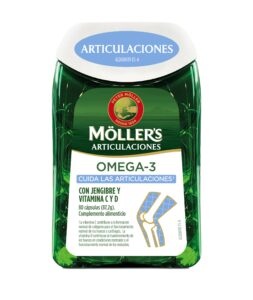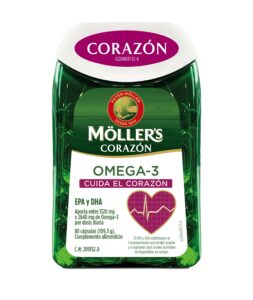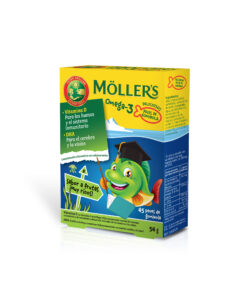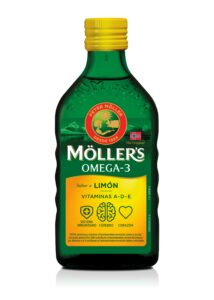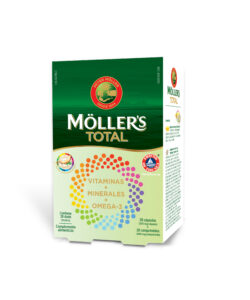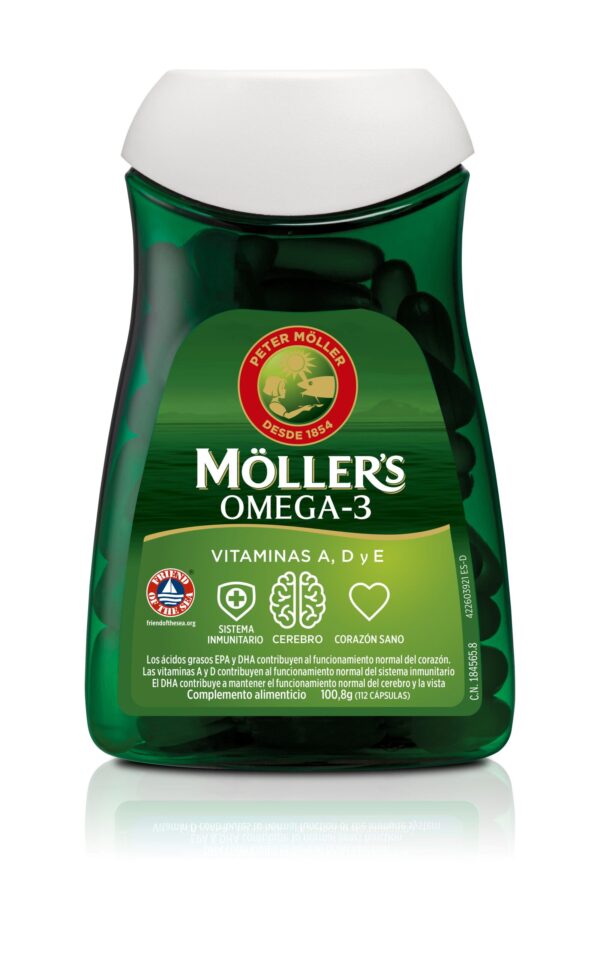We all know the benefits of omega-3. But what about the daily dose of cod liver oil? Or is that omega-3? And is cod liver oil and fish oil the same? With these three terms used interchangeably, it’s no wonder we get confused. But they are not all the same thing.
Home » Cod liver oil, fish oil, omega-3 – what’s the difference?

Omega-3 is a term for a group of polyunsaturated fatty acids. Cod liver oil and fish oil are the names of two different fish products. Cod liver oil is extracted from the cod liver and fish oil is extracted from whole fish.
Both cod liver oil and fish oil are naturally rich in omega-3 fatty acids. Möller’s capsules contain fish oil from anchovies and sardines that have been extra concentrated and thus contain more omega-3 than occurs naturally. Möller’s Cod Liver Oil is pure cod liver oil from the Northeast Arctic cod.
Cod liver oil and fish oil contain EPA and DHA
The omega-3 fatty acid, alpha lipoic acid (ALA) is found in many plant sources but it is only the marine sources that contain the long-chain omega-3 fatty acids eicosapentaenoic (EPA) and docosahexaenoic (DHA). Research shows that it is the marine long-chain omega-3 fatty acids we should be eating more of as they have proven beneficial effects on normal brain, heart, and vision functions.
Does the body produce omega-3?
Yes, and no. The fatty acid DHA is present in many cell membranes in humans and in higher concentration in some organs than others. The body can convert ALA (plant-based omega-3) to EPA and DHA, but these processes are not very effective. It is the microalgae in the sea that form the long-chain EPA and DHA fatty acids. These fatty acids move up the food chain as smaller fish eat the microalgae, larger fish eat the smaller fish, and so on. For people, the sources of these fatty acids are often the larger marine omega-3 oily fish such as salmon, mackerel, herring and cod liver oil extracted from cod liver.
Cod liver oil and fish oil as omega-3 supplements
Added omega-3 fatty acids though diet and supplements such as Möller’s Cod Liver Oil and Möller’s supplements are important to ensure an adequate intake of long-chain omega-3 fatty acids in the body. We get plant-based omega-3 through common foods such as vegetable oils, grains and some types of nuts.
How much omega-3 is there in cod liver oil?
The reason why cod liver oil and omega-3 are often mentioned in the same sentence is that cod liver oil is the best available source of marine omega-3. This doesn’t mean that other sources are inferior or that the fatty acids they contain are of lower quality. It just means that cod liver oil has a higher content of these fatty acids per measuring unit. A teaspoon of Möller’s Cod Liver Oil (5 ml) contains as much as 1.2 grams of omega-3 fatty acids, whereof DHA accounts for 0.6 grams and EPA for 0.4 grams.
What is good health?
Do you have a good lifestyle?
Lifestyle simply means the way in which you live. Health and lifestyle go hand in hand. You might feel you have a good lifestyle if you are physically active, eat healthily and generally experience a sense of wellbeing. Conversely, if you want good health you should also have a good lifestyle.
Physical activity is the major contributor to a good lifestyle, but diet, drugs, stress, sleep and social conditions are also play an important role. Being able to use the body properly to avoid injury also affects lifestyle. Physical activity can also prevent depression and help you to recover more quickly from mental illness, both of which obviously affect your lifestyle.
Diet can be a difficult topic for many. Perhaps you eat too much or too little or maybe you find it hard to know what foods to combine to have a balanced diet. It’s also important to eat food that contains important vitamins, minerals and dietary fibre, omega-3 and antioxidants. On top of all this, you also need to get enough energy, protein and the correct fatty acids. The requirement for these nutrients changes throughout your life. When you are older you also have different requirements than children and younger adults. Women also have different requirements than men. Pregnant and breastfeeding mothers also have special requirements.
When you get older, you lose muscle mass and your body requires less energy and therefore less food. You may lead a less active life than you did before, which is why you require less food. However, your need for minerals, vitamins and other nutrients remains the same. Of course, there are plenty of healthy and active older people, but when you reach 70 to 80 years of age, it’s easier to become ill, especially during flu season.
Some steps you can take to improve your lifestyle and health are to:
- eat a healthy and varied diet
- stay active
- watch your weight
- avoid too much alcohol and don’t smoke
- get enough sleep
- think positive
- practise good hygiene
What is good quality of life?
The World Health Organisation (WHO) defines quality of life as a state where the individual can realise their potential, cope with normal stressful situations, work in a rewarding and positive way, and be able to contribute to others and society.
Quality of life is a wide and somewhat diffuse concept that includes joy in, and a desire for, life. These are values that are rather felt than measured, which in turn are based on personal environment and choices. Quality of life doesn’t necessarily depend on being healthy or sick. It’s the moments between worries, sorrows, problems and ailments that matter. For example, if you have a chronic illness, a feeling of mastery can be important when talking about quality of life.
To sum up, quality of life is a combination of health, lifestyle, networks and social support. It’s about experiencing joy, meaning in life, satisfaction, security and a sense of belonging, as well as being able to use your strengths. It’s also about feeling interest in life, coping with everyday situations and a being committed to something or someone. If you have good quality of life, you will be able to cope better with the inevitable stressful situations in life.
Learn more
Exercise program for the elderly
Healthy Aging Healthy Bones
Healthy diet during pregnancy
Brain Healthy Aging
Good health, lifestyle and quality of life – What does it all mean?
Cod Liver Oil Healthy Aging
Get inspiration on our Instagram
This error message is only visible to WordPress admins
There has been a problem with your Instagram Feed.
